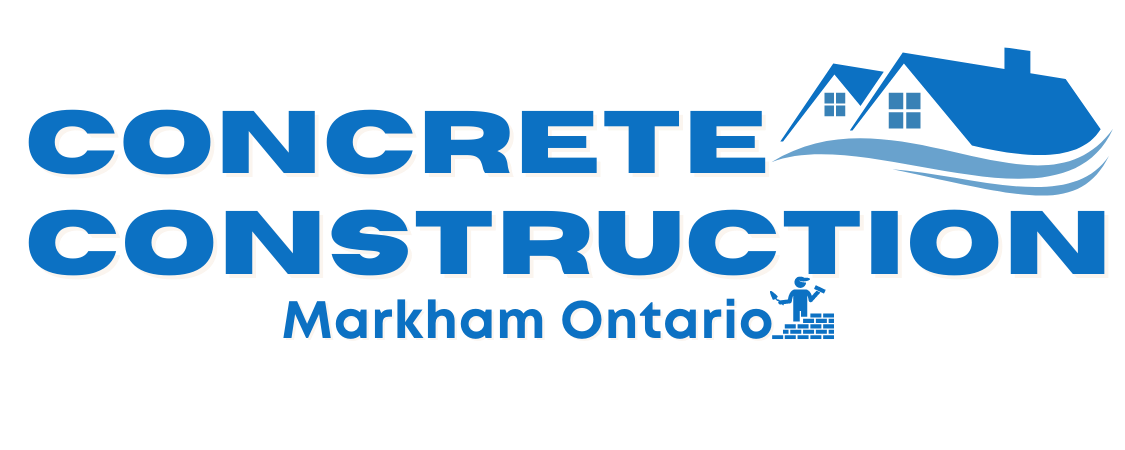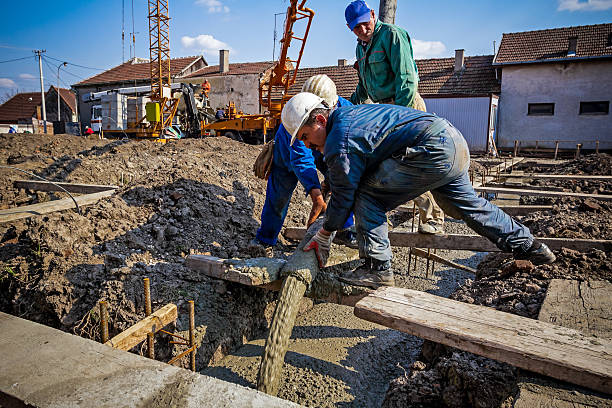Are you curious about the role of a concrete contractor in construction projects? Well, you’ve come to the right place! In this article, we will explore the important responsibilities and tasks that a concrete contractor undertakes to ensure the successful completion of a construction project. From installing and repairing concrete structures to collaborating with architects and engineers, a concrete contractor plays a vital role in ensuring everything goes smoothly.
When it comes to installing and repairing concrete structures, a concrete contractor is the expert you need. They have the knowledge and skills to handle all aspects of concrete work, from pouring foundations and slabs to constructing walls and sidewalks. Whether it’s a residential building or a commercial complex, a concrete contractor is responsible for ensuring that the concrete structures are strong, durable, and meet all safety regulations. They also play a crucial role in repairing any damages or cracks that may occur over time, ensuring the longevity of the structure. So, if you’re planning a construction project that involves concrete, a concrete contractor is an essential partner to have on board. Stay tuned to learn more about their collaboration with architects and engineers and their coordination with other tradespeople in the construction industry.
Installation and Repair of Concrete Structures
When you hire a concrete contractor, they will take care of all the installation and repair of your concrete structures, ensuring they are built to last and stand the test of time. Whether you need a new driveway, a foundation for a building, or repairs on existing structures, a concrete contractor has the expertise to handle it all. They will start by assessing the site and determining the best approach for your project. They will then prepare the area, ensuring proper leveling and excavation if necessary, before pouring the concrete and finishing it to your specifications. With their skills and knowledge, you can trust that your concrete structures will be strong and durable.
In addition to installation, a concrete contractor is also responsible for repairing any damages or deterioration in your concrete structures. Over time, concrete can crack, chip, or become worn out due to various factors like weather conditions, heavy use, or improper installation. When this happens, a concrete contractor will come in and assess the damage, identifying the cause and determining the best repair method. Whether it’s applying sealants, patching cracks, or reinforcing weakened areas, they will ensure that your concrete structures are restored to their original strength and functionality. Hiring a concrete contractor can avoid further damage and potential safety hazards.
Furthermore, a concrete contractor will also provide maintenance services to ensure the longevity of your concrete structures. Regular maintenance is essential in preserving the integrity of your concrete, preventing costly repairs in the future. A contractor will inspect your concrete structures periodically, looking for signs of wear and tear or any potential issues. They will recommend the appropriate maintenance measures, such as cleaning, sealing, or applying protective coatings, to keep your concrete structures in optimal condition. By entrusting your concrete maintenance needs to a professional, you can extend the lifespan of your structures and save money in the long run.
Overall, when you hire a concrete contractor, they will handle all aspects of installation, repair, and maintenance for your concrete structures. Their expertise and experience ensure that your projects are completed efficiently and to the highest standards. With their help, you can have confidence that your concrete structures will withstand the test of time and remain in excellent condition for years to come.
Collaboration with Architects and Engineers
Collaborating with architects and engineers, the contractor works closely to ensure the successful completion of the project. From the initial planning stages to the final construction, the contractor plays a vital role in translating the design vision into a tangible structure. They communicate with the architects and engineers to understand the project requirements, such as the desired aesthetics, functionality, and structural integrity. By working together, they can address any design issues or potential challenges, ensuring that the final product meets the client’s expectations.
During the collaboration process, the contractor provides valuable input based on their expertise and knowledge of concrete construction. They can offer suggestions on the most suitable materials, construction techniques, and cost-effective solutions. By sharing their insights, the contractor helps the architects and engineers make informed decisions that align with the project’s objectives and budget. This collaborative effort ensures that the design is not only visually appealing but also practical and achievable within the given constraints.
Furthermore, the contractor’s collaboration with architects and engineers extends beyond the planning phase. During the construction phase, they work together to resolve any unforeseen issues that may arise. The contractor provides feedback on the feasibility of the design and offers alternative solutions if necessary. Their collaboration ensures that any modifications or adjustments are made promptly, minimizing delays and keeping the project on track. By maintaining open lines of communication and a strong working relationship, the contractor, architects, and engineers can overcome challenges together and deliver a successful construction project.
Collaborating with architects and engineers is essential to a concrete contractor’s role in construction projects. Through close communication and teamwork, they ensure the design vision is translated into a functional and aesthetically pleasing structure. Their collaboration allows for exchanging ideas, expertise, and problem-solving, resulting in a successful project completion. By working together, the contractor, architects, and engineers can overcome any obstacles and create a final product that meets the client’s expectations.
Coordinating with Other Tradespeople
To effectively coordinate with other tradespeople, you’ll need to establish clear lines of communication and foster a collaborative environment. As a concrete contractor, it’s crucial to work closely with other tradespeople involved in the construction project to ensure that everything runs smoothly and efficiently. This collaboration starts with open and frequent communication. You should regularly meet with other tradespeople to discuss the project’s progress, address any concerns or issues, and make sure everyone is on the same page. By establishing clear lines of communication, you can minimize misunderstandings and prevent delays.
In addition to communication, fostering a collaborative environment is essential for successful coordination with other tradespeople. This means promoting teamwork and encouraging a spirit of cooperation among all involved. Each trade has its own expertise and responsibilities, and by recognizing and respecting the contributions of others, you can create a harmonious working relationship. Collaboration also involves actively listening to the ideas and suggestions of other tradespeople, as they may have valuable insights that can improve the project’s outcome. By fostering a collaborative environment, you can pool the knowledge and skills of all tradespeople involved, leading to a more efficient and successful construction project.
Lastly, as a concrete contractor, it’s important to be flexible and adaptable when coordinating with other tradespeople. Construction projects are dynamic and often require adjustments and modifications along the way. Being open to changes and willing to work with other tradespeople to find solutions is crucial. This may involve adjusting schedules, accommodating design changes, or coordinating resources. By being flexible and adaptable, you can ensure that the project stays on track and that all tradespeople can work together effectively to deliver a high-quality end result.
To effectively coordinate with other tradespeople as a concrete contractor, clear lines of communication must be established, and a collaborative environment should be fostered. This involves regular meetings, open communication, and active listening to ensure that everyone is on the same page. Additionally, promoting teamwork, respecting the contributions of others, and being flexible and adaptable are crucial for successful coordination. By following these practices, you can contribute to a smooth and efficient construction project, ultimately leading to the successful completion of the job.

